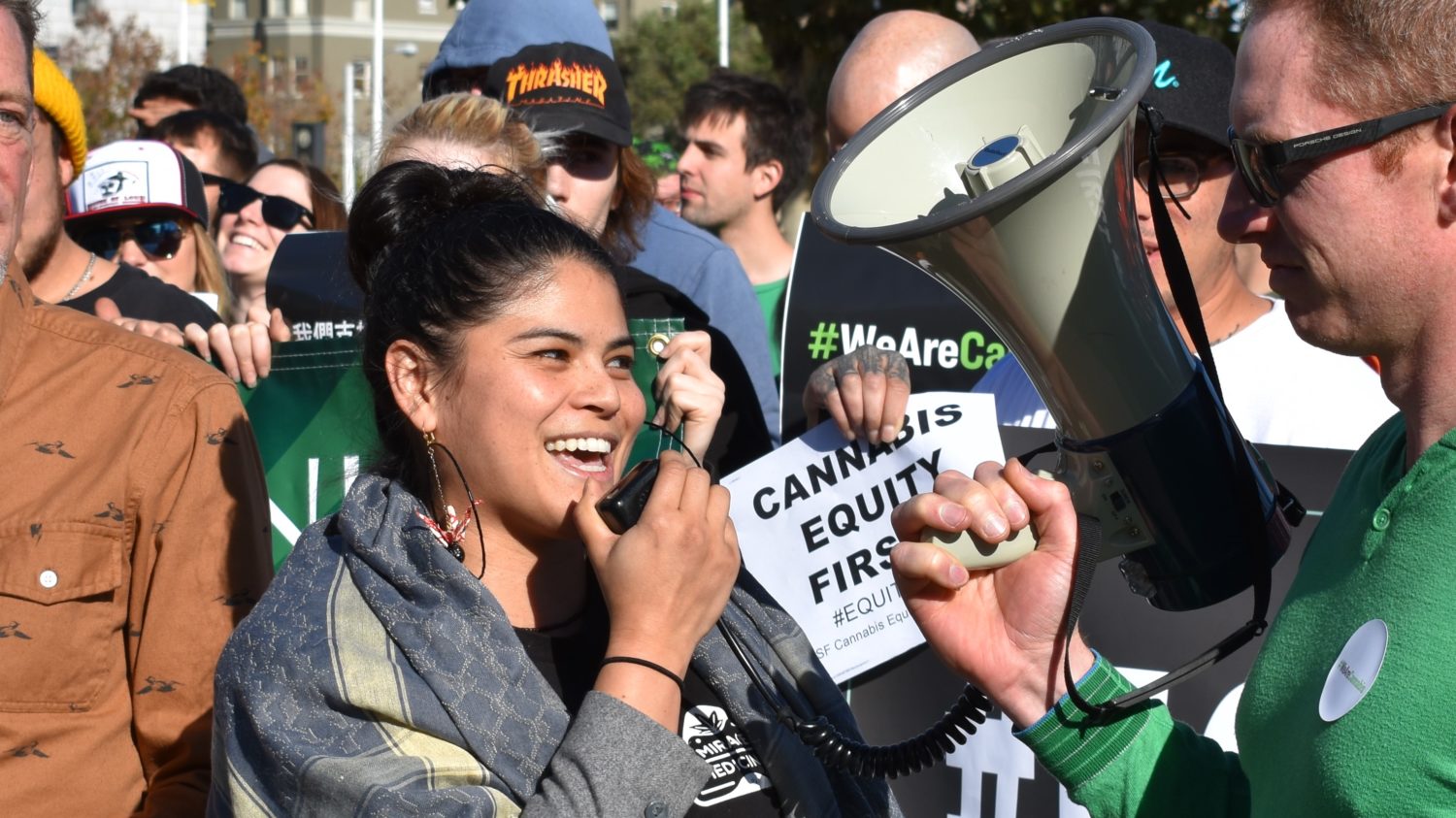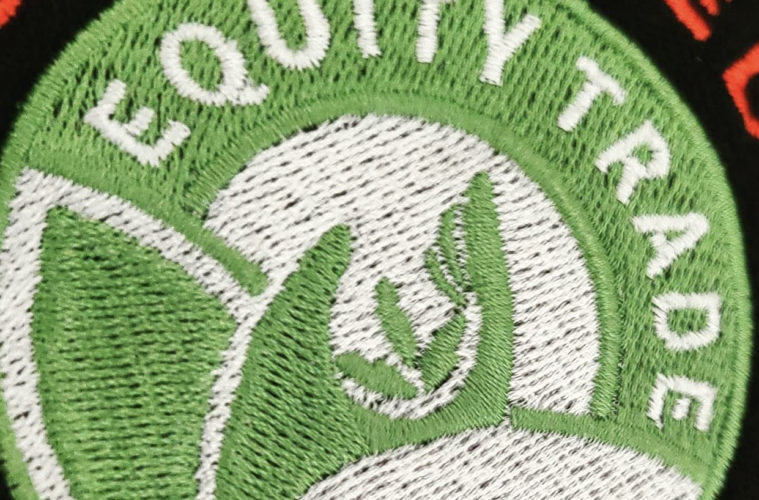We talked with the Original Equity Group about getting approved for the first federal social equity trademark. This will allow cannabis businesses and other industries to have an official mark identifying them as a business owned by BIPOC, LGBTQIA+ and/or veteran individuals.
The group was founded by five members of the San Francisco Cannabis Equity Working Group. SFCEWG identifies as a collective of verified equity applicants, equity business partners, consultants and other technical support specialists passionate about the creation and navigation of emerging cannabis equity programs as well as supporting an equitable culture for communities impacted by the “failed War on Drugs.” But the premise of vetting businesses trying to take part in equity programs certainly transcends any one city.
Longtime activists Nina Parks and Edward Brown chatted about their mission to get the group off the ground. Parks has spent years in the game as an operator/advocate/regulator and Brown clerked with a cannabis law firm before joining the other founders of OEG to get the ball rolling.
“It’s been an honor to get down with Ed Brown and Ramon Garcia. Ramon actually had this vision for the trade certification back when we were sitting on the California Growers Association board together. He had already been talking about this concept,” Parks told L.A. Weekly.
She went on to describe how palatable the idea has been across the board. From the consumers who want to support equity brands to the distributors and purchasers responsible for helping it get to shelves.
“Natural foods already have so many different certifications and people were very used to being able to look at their packaging to figure out, like, is this clean green certified or is this organic, or is this certified fair trade or whatever. We’ve seen other sectors of our economy and of our purchasing culture that have actually seen success rates through having a certification mark,” Parks explained. “And that was to solve issues around distributors and retailers that are like, ‘Well you know we want to support equity but you know there’s no equity products to have on our shelves’ and we’re like, ‘Yeah, we see how that could be a problem. So how about we help you solve it by anything that has this green mark on it you just pick that up.’”

Parks advocating for Social Equity in San Francisco. Photo: Jimi Devine
We asked Parks if buyers should have a deeper understanding of where their weed is coming from regardless of markings. She argued yes, collectively. But was more sympathetic to consumers with good intentions.
“Those are the things that we’re working through,” Parks said. “That’s what we’re really hoping to help start to achieve by taking these media spots. How do we start to build the awareness for folks so that both the consumer, and also our buyers, understand what the value is of purchasing equity.”
Brown spoke about where the biggest hurdles are for equity operators with the conversations now being had at the municipal, state and federal level.
“I would say, probably, it’s really the local level, the local cities. It’s not so much the state and the feds. It’s getting through that first application process,” Brown told L.A. Weekly.
Those earliest hoops can involve the City Council or the police department chief. From there, they’ll head on to the planning department – often its own set of nightmares applicants will need to pour funds into.
“Those things just take money and time and effort away, right? From the actual building of the business and bringing in money and actually putting your product on the shelf and getting started. So it’s all of those barriers, and that’s new for equity operators, right? That’s new for a lot of them. The traditional market didn’t have to go through planning,” Brown said with a laugh.
We asked the pair if it’s easier to explain why equity business permits make sense these days given the national dialogue around the way communities of color interact with the police. Or if they still have to start from scratch when trying to explain.
“Less now than five years ago,” Parks said. “However, it is a regular thing and I do have an arsenal link where I’m just like, let me cut and paste something just to send it to you because it sounds exhausting.”
Brown felt like he still has to cover everything a lot of the time as they approach the issue in more places.
“It’s the same. It’s kind of exhausting,” Brown said. “I mean, we kind of have to look at the localities, right? Just look at all of the licenses and ordinances. What do you see that’s across the board? There’s no equity language. Look at Fairfield, look in Redwood City, you know? You can go down the board and they’re not putting that in there. And so yeah, unfortunately, we still have to have these conversations and it feels like we’re having to make people understand why this is important.”
Brown argued these cities should see the opportunity to right some of the wrongs of the past. “Because somebody was incarcerated in your city, somebody was suffering from your policies before.”
Currently, the OEG is fundraising. They plan to use the funds to bring on support to help them police the companies looking to take part in the program and to expand capacity for outreach and services.
Finally, the pair gave a big shoutout to the Law Office of Omar Figueroa. When the feds attempted to block the trademark for OEG, Figueroa and his staff spent two years fighting the case.
The brands already bearing OEG’s seal of approval include SF Roots, Kingston Royal, Cloud 9/ Special Branch, KGB Reserve, Gift of Doja, James Henry, New Life, Dreamt, Synch SF, Ojo De La Sol, Clarified Confections, Locals Equity Distribution, Peakz Co. and Oakland Extracts.
Advertising disclosure: We may receive compensation for some of the links in our stories. Thank you for supporting LA Weekly and our advertisers.

